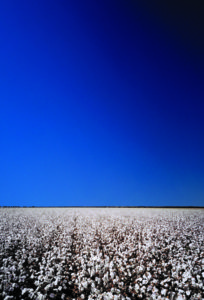Consumers are more curious than ever about where their food comes from. Was this chicken raised cage-free? Was this asparagus hand-watered with rainfall from the mountains? Did the farmer sing to this cow? It’s important to understand where your food comes from and how it’s produced, but being informed requires reviewing more than one source.
Because consumers want to know more about food sources, several food bloggers have emerged to capitalize on this quest for knowledge. Food Babe has become one of the most popular of these bloggers with a best-selling book and more than a million Facebook likes. She investigates what’s really in your food and (spoiler alert) it’s not what you think!
 Recently, Food Babe wrote a story titled, “This Ingredient Isn’t Food, but Most Americans Eat It.” She shares that cotton isn’t food, but it’s been in our food supply for decades. She gives examples of cotton crop waste being used in products, like Kraft® shredded cheese, and as feed for conventional livestock. She also says that cotton is the “World’s Dirtiest Crop” which contaminates groundwater and the food supply with pesticides.
Recently, Food Babe wrote a story titled, “This Ingredient Isn’t Food, but Most Americans Eat It.” She shares that cotton isn’t food, but it’s been in our food supply for decades. She gives examples of cotton crop waste being used in products, like Kraft® shredded cheese, and as feed for conventional livestock. She also says that cotton is the “World’s Dirtiest Crop” which contaminates groundwater and the food supply with pesticides.
Enter: Cotton Incorporated, the nonprofit research and marketing company representing upland cotton. They obviously weren’t too happy with Food Babe’s post, mostly because it was riddled with factual errors. Cotton Inc. points out that, “Although cotton is neither a fruit nor a vegetable, it is a seed crop; like sunflowers, soybeans, or safflower. In fact, cotton is regulated as a food crop by the FDA: The Food & Drug Administration states in its Code of Federal Regulations: Title 21: Food and Drugs, Part 172 that ‘cottonseed products may be used for human consumption.’ As such, it is a subject to the same government oversight as any food.”
Cotton Inc. also points out that: “Cotton is NOT the world’s dirtiest crop. Cotton accounts for only 5.7% of global pesticides sales, according to Cropnosis, an organization that monitors global chemical sales. In the U.S., cotton growers have reduced pesticide applications by 50% over the past 30 years.” The full response from Cotton Inc. is posted on the nonprofit’s Facebook page.
This wasn’t the first time that Food Babe’s content has been scrutinized. Another blogger, SciBabe, examines many of Food Babe’s claims and addresses them point by point.
As someone who works in the agricultural industry, I hear several viewpoints for and against conventional farming. Sometimes they affect my opinion and sometimes they don’t. It’s important to read multiple verified sources and talk to people close to the issues. Not all sources are created equally.
